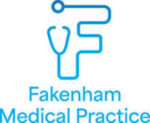Diazepam prescribing for Fear of Flying
Fear of Flying
After careful consideration, we will no longer prescribe benzodiazepines or sedatives (such as diazepam) for patients experiencing fear of flying. Many other GP practices have adopted similar policies.
Patients sometimes request diazepam to help manage a fear of flying or to aid sleep during flights.
Initially introduced in the 1960s, benzodiazepines – such as Diazepam were considered revolutionary. However, over time it became increasingly clear that they have significant drawbacks. Short-term effects include memory impairment, reduced coordination, decreased concentration, and slower reaction times. Long-term use can lead to addiction, with withdrawal symptoms such as seizures, hallucinations, agitation, and confusion. There are also long-term risks, including impacts on cognition and balance. Unfortunately, benzodiazepines have become widely misused and are now a common drug of abuse.
Because of these issues, the use of benzodiazepines has been increasingly restricted worldwide since the 1980s and 1990s—particularly in the UK.
In the UK, Diazepam is classified as a Class C / Schedule IV controlled drug.
The following guide outlines why this medication is no longer prescribed by our practice for flying-related anxiety:
Why Diazepam Is Not Prescribed for Flying Anxiety
- Safety Risk in Emergencies: Benzodiazepines cause delayed reaction times and slower thinking. In the event of an in-flight emergency, this could impair your ability to respond appropriately, putting your safety—and that of others—at risk.
- Increased Risk of Blood Clots: Although Diazepam may help you fall asleep during a flight, it induces non-REM sleep, which reduces natural movement. This immobility increases the risk of blood clots (deep vein thrombosis, or DVT), particularly on flights longer than four hours. Such clots can be life-threatening.
- Paradoxical Reactions: While Diazepam is usually sedating, a small percentage of individuals experience the opposite effect: agitation, aggression, or disinhibition. These behaviours could endanger yourself and others, and may lead to legal consequences.
- Increased Risks with Alcohol: The combination of benzodiazepines and alcohol magnifies all the risks outlined above.
- Guideline Restrictions: The British National Formulary (BNF) contraindicates the use of Diazepam for treating phobic states and discourages its use for short-term, mild anxiety. Prescribing against these guidelines may expose your doctor to legal liability.
- NICE Guidance: According to NICE guidelines, medications should not be used for mild, self-limiting mental health disorders. In more significant anxiety-related conditions, benzodiazepines, sedating antihistamines, or antipsychotics are also not recommended.
- Legal Risks Abroad: In some countries, including parts of the Middle East, it is illegal to import benzodiazepines. They may be confiscated, and you could face legal repercussions.
- Workplace Drug Testing: Diazepam remains in your system for an extended period. If your employment involves drug testing, you could fail a test after taking it.
- Link to Dementia: Long-term benzodiazepine use has been associated with an increased risk of developing dementia.
Alternative Support
Given the above concerns, we will no longer prescribe Diazepam for flight anxiety. Instead, we recommend either self-referral to NHS Talking Therapies (https://notts-talk.co.uk/getting-support/), Hypnotherapy or the following aviation industry-approved flight anxiety courses, which are widely accessible:
- EasyJet Fearless Flyer: https://fearlessflyer.easyjet.com
Tel: 0203 813 1644 - British Airways Flying with Confidence: https://flyingwithconfidence.com
Tel: 01252 793250
Please note: Flight anxiety is not covered under General Medical Services as defined by the NHS GP contract. Therefore, we are not obligated to prescribe medication for this condition.
Further Information
